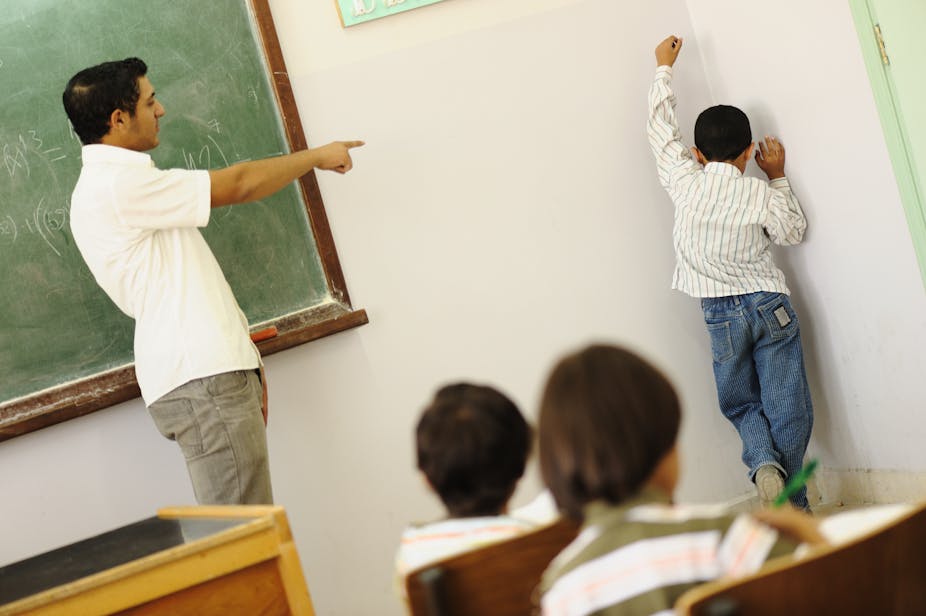Richard Walden, chairman of the Independent Schools Association, has claimed that state schools fail to provide pupils with a “moral compass” because of a relentless focus on exam results and league tables.
Russell Hobby, general secretary of the National Association of Headteachers, retorted that there is no evidence for this failure, and that those who led us into the financial crash were typically not state-schooled.
I suggest that we stop the finger-pointing and consult the evidence that is being collected. At the Jubilee Centre for Character and Virtues at the University of Birmingham we are conducting some of the most extensive research ever undertaken into moral virtues and values among school children in the UK.
Although we are still in the process of analysing our data, initial findings indicate that Year 10 children across the dozens of both private and state schools surveyed seem to be scoring lower on some traditional virtues, such as honesty and courage, than we would ideally want to see, based on their responses to a standard set of moral dilemmas.
Results so far, however, indicate no systematic differences between state-funded and independent schools. Those schools that seem to perform best in our surveys include both private and state schools, as do the lowest performing schools.
School type is a distraction
While an exclusive focus on exam results is, no doubt, detrimental to character development, quarrels about the pros and cons of different school types in cultivating good character are ultimately just a distraction.
More important is the acknowledgement that all schools need to focus on this aspect of learning in order to develop flourishing individuals and a flourishing society. Recent comments made by leading politicians on both sides of the political spectrum in the UK may indicate that this acknowledgement has already been made in the corridors of Westminster.
Unfortunately, many politicians seem to understand character merely in terms of so-called “soft skills”, such as resilience and self-confidence, which are, in essence, amoral and only instrumentally, rather than intrinsically, valuable.
Teachers should join hands with academics in trying to persuade politicians and policy makers that the sort of character most worthy of development in all schools is moral character, and that such character is an intrinsic part of any well-rounded, well-led, life.
How to teach and measure morality
But can schools really provide pupils with a moral compass? While many of the commonest arguments against moral or character education in school fail to hold water, such an enterprise does face significant challenges.
Questions remain about how moral character should best be taught in schools – either as a discrete subject or as a part of the whole school ethos. From there, how do we measure character and the efficiency of efforts to improve it?
We must also respond to the number of recent failures to improve character, such as the demise of the 1990s self-esteem industry and the emotional intelligence movement. We need to know why they failed and what lessons can be learnt from their failures.
There is also a problem in how to unpick to the genetic bedrock of personality traits which seems to underlie character, such as the pervasive Big-Five traits of openness, conscientiousness, extroversion, agreeableness and neuroticism that seem to be hardwired into our genes.
How do we explain recent findings about the emotional, intuitive “dog” almost invariably wagging the rational “tail” rather than vice versa? This means that moral reasons seem typically added as mere rationalisations after the decision has been taken.
We must also figure out how to teach children to avoid situations where their character, however strong it may seem, will be stretched beyond breaking point. Social scientific experiments have shown us that if people are placed in extraordinary situations, they will behave in extraordinary (and often immoral) ways.
There are also questions about how to undo the effects of negative character building that may have taken place before children entered school. And how to turn the varying socio-moral self-concepts or “habitus” which children bring to school, into a moral resource rather than a source of potential disadvantage.
We must also motivate children to improve morally, given their lack of immediate moral self-transparency. Children’s psychological drive for self-verification – confirming and reinforcing who they already think they are – often seems to be stronger than the drive for self-enhancement or self-improvement.
Those are the sort of questions that I would like to see practitioners and academics debate in tandem, rather than engaging in futile finger-pointing.

